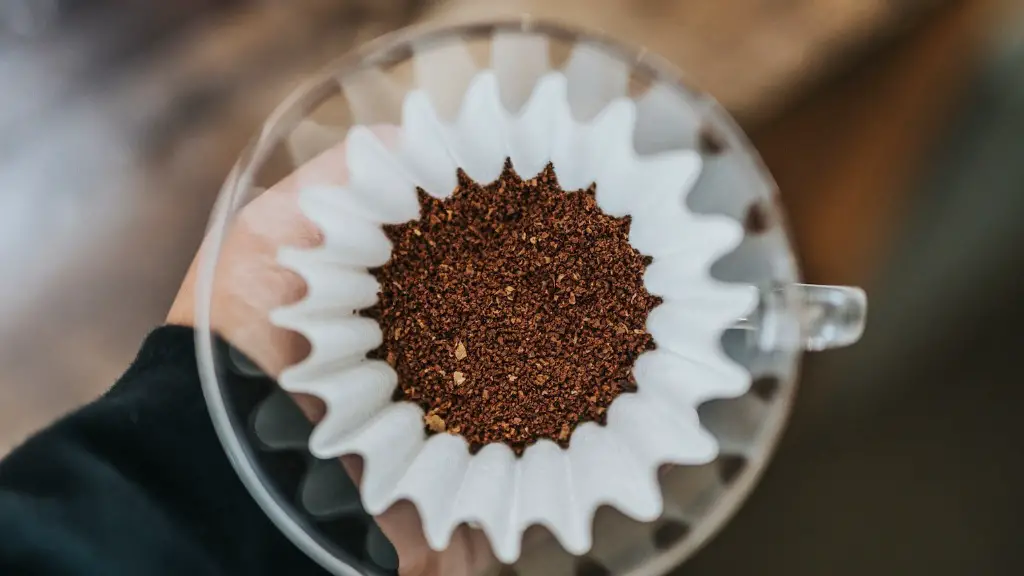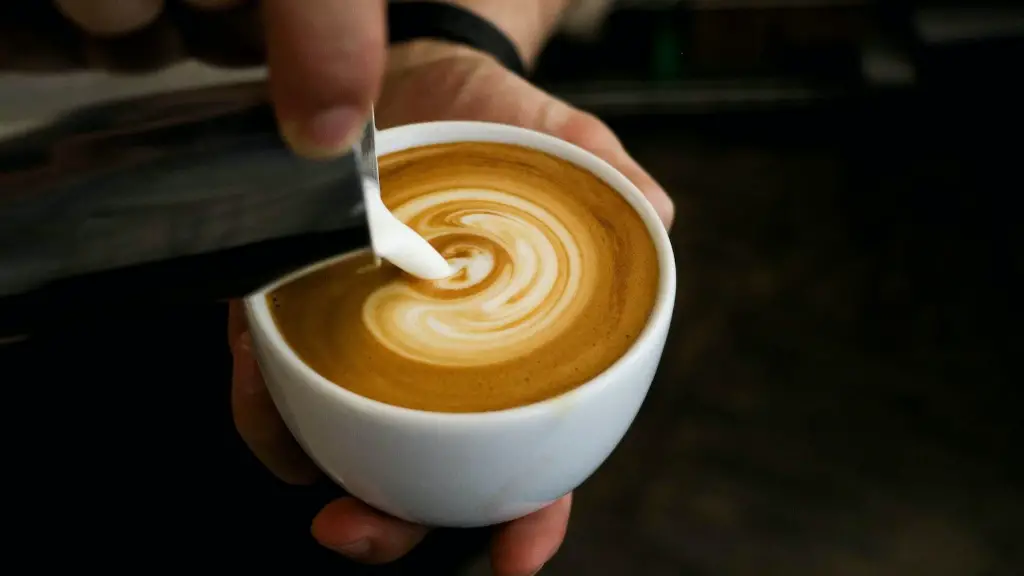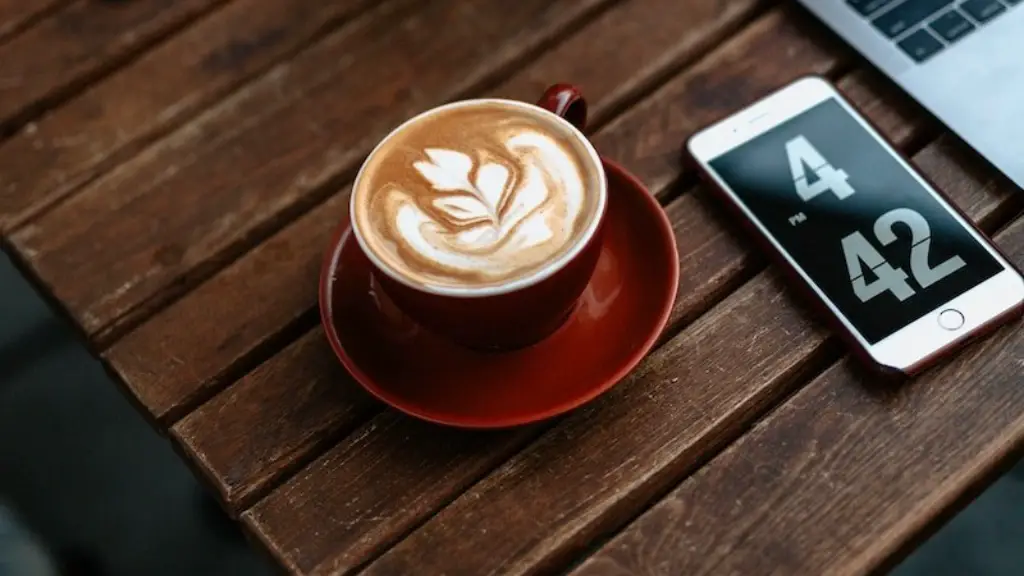We’ve all experienced it. After sipping a steaming cup of morning coffee, the rush of energy and pleasure that follows. Have you ever wondered why this is? Many of us enjoy the taste of coffee, and the wake-up alertness that comes with it, but there are some scientific explanations behind the jolt of joy we get when drinking coffee. Here, we dig into the science behind why coffee makes us feel so good and also explore some of the different effects that coffee can have on our overall happiness.
To begin with, coffee plays a major role in our daily lives. According to the National Coffee Association, 64% of Americans drink coffee every day. Coffee is a beverage that is both affordable and easy to access for people all around the world, making it a popular choice for those looking for a daily caffeine boost. And that jolt of caffeine is indeed one of the reasons why drinking coffee makes us feel so good.
Caffeine is a stimulant that affects both the brain and body. It blocks adenosine, a neurotransmitter which plays a role in managing fatigue, helping us to feel more alert and awake. This has beneficial effects for our overall productivity and mood, making us more energized and therefore happier. Additionally, caffeine triggers the release of dopamine, a hormone associated with pleasure and reward. This “feel good” response is the same one that we feel when we participate in other activities we enjoy, such as going to the movies or eating our favorite food. So in essence, drinking coffee physically triggers a feeling of happiness and pleasure in our brains.
But caffeine is not the only chemical at play here. Coffee also contains antioxidants that can have a positive effect on our bodies. These antioxidants help boost our mood and energy levels, while potentially also protecting our cells from long-term damage. Additionally, compounds like serotonin and theobromine provide a calming effect that can help reduce stress and anxiousness.
What’s more, studies have suggested that drinking coffee may be linked to a decreased risk of depression. Studies such as those of the Harvard T.H. Chan School of Public Health, have found that drinking two to four cups of coffee per day can reduce the likelihood of depressive symptoms by 10 to 15%. Though further research is still needed, it appears that the antioxidants and other compounds present in coffee may positively impact mental health and wellbeing. That being said, it is important to safeguard from complication by drinking coffee in moderate amounts.
In the end, coffee provides more than just an energy boost. Its complex blend of chemicals interact with our bodies in unique ways to help us feel happier, less stressed and more alert. And while it is likely to have a strong effect on us physically, it is also important to note its psychological benefits as well. As a comforting companion for millions of people around the world, coffee is an integral part of our lives and an important contributor to our overall happiness and wellbeing.
Coffee in the Workplace
For most of us, coffee is an essential part of the workday. Whether it’s a few sips at the start of the day or a regular caffeinated fix throughout, coffee helps us focus and stay productive on the job. Not only is it quick and relatively inexpensive, but studies have suggested that drinking coffee before and during work has a positive effect on performance. The National Institute of Health observes that coffee consumption in the workplace can lead to better concentration, improved alertness and task accuracy, as well as enhanced attention span.
Business establishments are well aware of this. Some companies stock their kitchens with coffee, tea and other beverages to both motivate and comfort employees. Others provide special deals and discounts for employees at nearby coffee establishments. These practices indicate the value of coffee in generating a relaxed and productive atmosphere at work. Therefore, aside from its practical use for staying awake, alert and comfortable, coffee can also be a way for people to bond and connect on the job.
Comparing Different Types of Coffee
One of the reasons why coffee makes us feel so good is the range of different types that are currently available. From cappuccinos and lattes to mochas and macchiatos, there is an array of flavors and textures to choose from, each providing its own unique benefits. For instance, cappuccinos contain a combination of espresso, foamed milk and steamed milk, with some also including a variety of syrups and flavors to customize the overall taste. Lattes offer a smooth and creamy experience, with espresso and steamed milk combined. Mochas are popular for their unique flavor, made with espresso combined with sweet chocolate, while macchiatos provide a strong yet simple espresso kick.
No matter your preference, coffee has something for everyone. Whether you like your coffee strong and intense or creamy and sweet, coffee can be prepared in a number of different ways to suit individual tastes. This wide range of options provides a custom coffee experience that keeps people coming back for more. It certainly helps to explain why coffee is so pervasive in our daily lives and our collective search for a boost of happiness.
Exploring the Social Aspects of Coffee
Coffee has a major social component that needs to be acknowledged. Coffee has long transcended its role as simply a functional beverage and become a part of social relationships and events. People share coffee with friends, colleagues and family members to make good memories, discuss important issues and enjoy a sense of community. For example, during social affairs and events, it is common to see coffee served alongside food and other beverages, with people coming together to enjoy its flavor and warmth.
Coffee has also emerged as a key player in popular culture. As evidenced by its presence in movies, television and other media, coffee has become a universal symbol of friendship and camaraderie. It is no surprise then that so many people get positive feelings from simply drinking a cup of coffee, both from an emotional and physical standpoint. And with the emergence of specialty cafes around the world, coffee has become a way for people to connect and spend quality time with one another in a relaxing environment.
The Ups and Downs of Coffee
As with any other substance, the effects of coffee are not entirely positive. Coffee can cause certain physical side effects if taken in excess, such as insomnia, increased heart rate and headaches, to name a few. Furthermore, coffee can interfere with certain medications, including antidepressants and stimulants, so it is important to be mindful of any potential risks. Therefore, although coffee has many beneficial properties, it is important to take it in moderation and be aware of any potential risks.
That being said, modern science has revealed a wealth of insights on the positive effects of coffee. Research by hospitals, universities and medical institutions have provided an evidence-based understanding of the role coffee plays in our lives. From its role in physical and mental health, to cognitive performance and social interactions, it is likely that coffee will continue to have a major impact on our daily lives and collective happiness.
Environmental Impact of Coffee
The coffee industry is one of the largest in the world and is currently worth billions of dollars a year. However, according to the World Economic Forum, the global production of coffee has made irreversible damage to the environment, leading to issues such as deforestation and loss of biodiversity. This environmental side effect is mainly caused by unsustainable production, which requires large quantities of land to grow coffee plants. As a consequence, coffee farming is causing soil erosion, water pollution and accelerates climate change.
Fortunately, there are solutions that are beginning to take shape. Sustainable coffee initiatives are increasingly being put into action such as replanting coffee forests and the introduction of organic coffee farming. Additionally, some companies have taken a conscious approach to their supply chain in order to reduce the impact their business has on the environment. By supporting such initiatives, we can collectively help to reduce the environmental impact of the coffee industry and embrace eco-friendly options instead.
The Future of Coffee
It is fascinating to explore why drinking coffee makes us feel so good. This is a curious yet integral part of the history of coffee, an age-old beverage that has come to be an essential part of our lives. As companies, institutions and individuals increasingly focus on the potential of coffee and the caffeine industry, we can expect to see new and innovative products and methods of consumption. This could range from novel combinations of flavors, to caffeine-infused foods and drinks, or even entirely new methods to reduce side effects. Whatever the future may bring, it is highly likely that coffee and its unique blend of chemicals will continue to deliver a jolt of happiness and pleasure to people worldwide.




